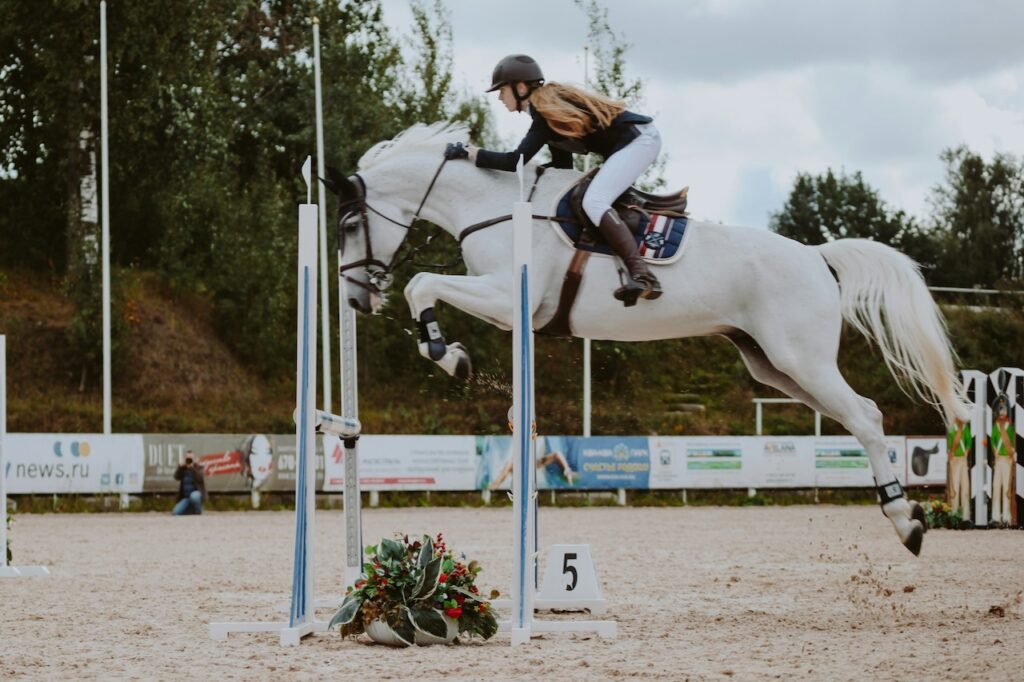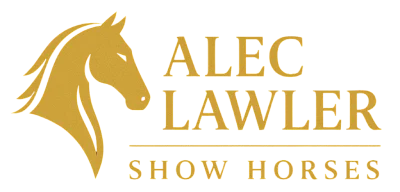
Behind every ribbon and every flawless round is a carefully balanced fuel source—nutrition. A show horse isn’t just a beauty on display; they’re an athlete. And just like any high-level competitor, their diet plays a crucial role in maintaining peak performance, focus, stamina, and recovery.
Whether your horse competes in hunters, jumpers, dressage, or halter classes, dialing in their nutrition is one of the smartest ways to keep them healthy, happy, and competitive.
Here’s what you need to know about feeding the equine athlete.
1. Start with the Basics: Forage First
The foundation of every equine diet is quality forage—usually hay or pasture. Forage supports digestion, keeps the gut moving, and provides fiber, which is essential for gut health and energy regulation.
- Show horses should consume at least 1.5–2% of their body weight in forage daily
- Choose clean, mold-free hay with good nutritional value (such as timothy, orchard, or a mix)
- Provide free-choice access to hay or pasture whenever possible
Skipping on hay in favor of concentrates can lead to ulcers, behavior issues, and poor performance.
2. Energy for Performance: The Right Concentrates
Once your horse’s forage needs are met, concentrates (grains, pellets, or sweet feeds) fill in the energy gap—especially for horses in hard work.
- Oats, corn, and barley are common energy sources but should be fed cautiously to avoid starch overload
- Commercial performance feeds are often balanced for protein, vitamins, and minerals
- Work with a nutritionist or vet to ensure your horse is getting the right balance of calories and nutrients based on their workload
3. Protein: Building Muscle and Recovery
Show horses need high-quality protein to support muscle development, repair, and recovery. This is especially important for horses in consistent training or growth phases.
Look for feeds or supplements that include:
- Alfalfa hay, soybean meal, or flaxseed
- Essential amino acids like lysine and methionine
Adequate protein doesn’t just build topline—it helps horses recover more efficiently after intense workouts or multi-day shows.
4. Electrolytes and Hydration: Don’t Overlook the Essentials
Travel, heat, and competition can all lead to dehydration. Replenishing electrolytes—sodium, potassium, calcium, and magnesium—is key to keeping your horse’s muscles firing correctly and preventing fatigue or cramping.
Tips for staying ahead of dehydration:
- Offer salt blocks or loose salt daily
- Add electrolyte supplements during hot weather or travel
- Always provide fresh, clean water
- Soak hay or add water to grain to encourage intake during travel or shows
Watch for signs of dehydration like dry gums, dark urine, or lack of appetite.
5. Supplements: Targeted Support for the Show Horse
In many performance barns, supplements are used to support specific needs. Common categories include:
- Joint support (glucosamine, chondroitin, MSM)
- Digestive health (prebiotics, probiotics, ulcer-prevention aids)
- Calming aids (magnesium, thiamine, or herbal blends)
- Hoof and coat health (biotin, omega-3s)
It’s easy to overdo supplements, so always evaluate what’s necessary with the help of a vet or nutritionist.
6. Show Day Strategy: Stick to What They Know
On show days, avoid introducing new feeds or supplements. The goal is stability and predictability—horses are sensitive to changes in their routine.
- Feed early and as close to the usual schedule as possible
- Bring hay and grain from home to avoid dietary shifts
- Offer soaked hay cubes or beet pulp if appetite dips
- Make water easy and familiar (bring water from home or flavor it lightly if your horse is picky)
After your ride, provide a small meal, plenty of water, and light turnout or hand-walking to support recovery.
7. Long-Term Health: Monitor and Adjust
Your show horse’s nutritional needs will evolve over time based on age, performance demands, and even the season.
- Regularly assess body condition score (BCS) to avoid over- or underfeeding
- Monitor coat condition, hoof quality, and energy levels
- Have your horse’s teeth checked annually—dental issues can interfere with feed absorption
- Adjust feed quantities during downtime or off-season to prevent weight gain
Final Thoughts: Nutrition Is Performance Insurance
Feeding a show horse isn’t about following trends—it’s about building a tailored plan that keeps your equine partner thriving both in and out of the ring.
Balanced nutrition is the silent partner in every success story. It powers the jump, sustains the trot, and fuels the brilliance that makes your horse shine under the spotlight.

